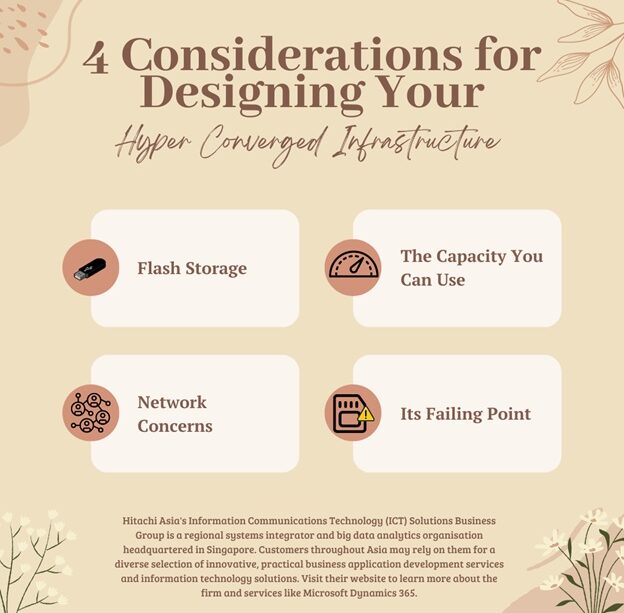4 Considerations for Designing Your Hyper Converged Infrastructure

More than one physical node having hosting software for resource pooling and sharing is the bare minimum for a hyper-converged architecture. Other services, including unified management, orchestration, backup, security, and replication, are frequently intimately integrated with these foundation services. The following are four considerations to make for designing your hyper converged infrastructure.
#1 Flash Storage
Vendors often have strict control over the media, endurance, performance, brand, and firmware in a typical SAN. There is frequently little to no jurisdiction in an SDS solution. Don’t assume that just because one vendor supports an SSD, it will work with another. Some firms even use SAP HANA in Singapore.
#2 The Capacity You Can Use
It might be challenging to predict how much capacity a vendor might provide. Furthermore, it might also be challenging to predict what you will end up with, and these figures can be tough to compare among providers. More work is necessary on the storage side when creating hyper-converged infrastructure solutions. Understand how much CPU and memory you will use on each node.
#3 Network Concerns
The network is crucial in a hyper converged infrastructure. It is vital to note that you will require storage networking concerns such as high port buffers, low contention, low latency, and high bandwidth for hyper converged systems. Some SDS technologies have routable connections between cluster nodes, allowing them to traverse data centres.
#4 Its Failing Point
A failing disc deactivates the node in your hyper converged infrastructure, and a failed disc deactivates the disc group. The SDS node will likewise fail if the node’s hypervisor fails. If a cluster loses more nodes than permitted, the default action is to take all storage offline. Many solutions might have nodes in several geographical areas to give additional security.
Hitachi Asia’s Information Communications Technology (ICT) Solutions Business Group is a regional systems integrator and big data analytics organisation headquartered in Singapore. Customers throughout Asia may rely on them for a diverse selection of innovative, practical business application development services and information technology solutions. Visit their website to learn more about the firm and services like Microsoft Dynamics 365.













